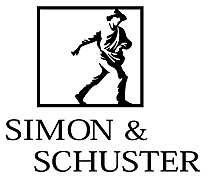 How much more does 100% post-consumer recycled paper cost? Earlier this month, Green Cities California -- which includes L.A. and 10 California cities and counties -- pledged to make a complete switch to 100% post-consumer recycled copy paper -- though with no set date for finalizing the switch. I'm support the initiative, but I started wondering what the financial implications of this green decision would be.
How much more does 100% post-consumer recycled paper cost? Earlier this month, Green Cities California -- which includes L.A. and 10 California cities and counties -- pledged to make a complete switch to 100% post-consumer recycled copy paper -- though with no set date for finalizing the switch. I'm support the initiative, but I started wondering what the financial implications of this green decision would be.
After all, even though making post-consumer recycled paper doesn't kill trees and saves lots of energy, the eco-friendly paper market still hasn't reached the scale to make it cost-competitive with virgin paper, as I found out the hard way through my research on green business cards.
Santa Monica couldn't tell me how much more the switch to 100% post-consumer recycled paper cost the city, partly because they made the switch back in 2004. Getting an accurate number would mean accounting for inflation, paper use reduction programs, structural changes in the city, etc., making calculations difficult.
Luckily -- at least for this numbers-crunching mission -- the city of L.A. hasn't made a full switch yet. Only 30% of the paper the city of L.A. uses is 100% post-consumer recycled. So I was able to find out what the cost difference of switching the rest of that paper would be from Gerald St.Onge, who does environmentally preferred purchasing for the city L.A.
St.Onge said that 100% post-consumer recycled paper would cost about 50% more than virgin paper. In fact, the reason L.A. hasn't gone all post-consumer recycled already is due to budgetary reasons -- not due to lack of availability, the reason Shannon Parry, an environment analyst for Santa Monica's Environmental Programs Division, pointed to.
"Right now we're tying to [make up] the difference in cost by paper reduction," St.Onge said. The higher cost of 100% post-consumer recycled paper is a bit of a chicken or the egg problem. Due to the added expense, government agencies, companies, and individuals don't buy more of it. But because not enough of it is bought, the recycled paper market doesn't grow as fast in scale to bring down those prices.
Although the city of L.A. hasn't set a deadline to complete the switch too all post-consumer recycled paper, Onge said "we're committed and we're doing everything we can to change all the commodities that are being purchased into environmentally-friendly products." There's reason to be hopeful: Along with the Green Cities California initiatives, L.A. City Council approved an Environmentally Preferable Purchasing statement and program last month, committing the city to opting for eco-friendly products whenever possible.
via LA Times Blog



